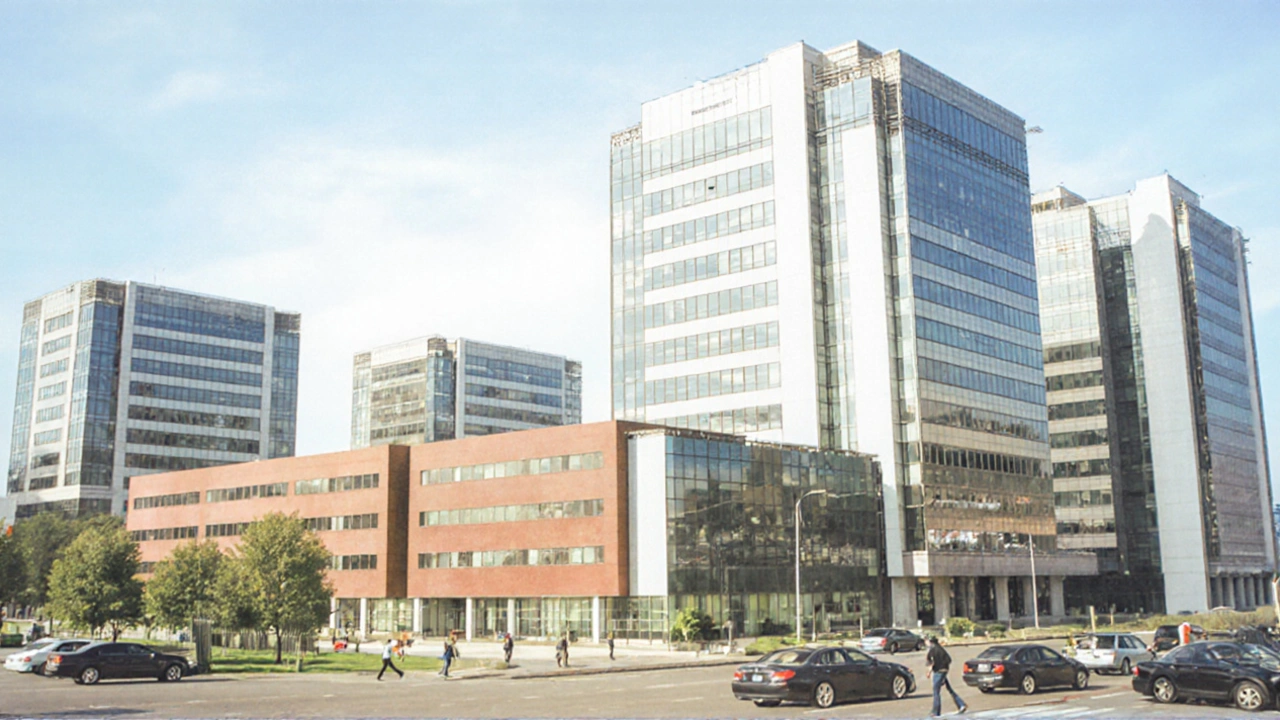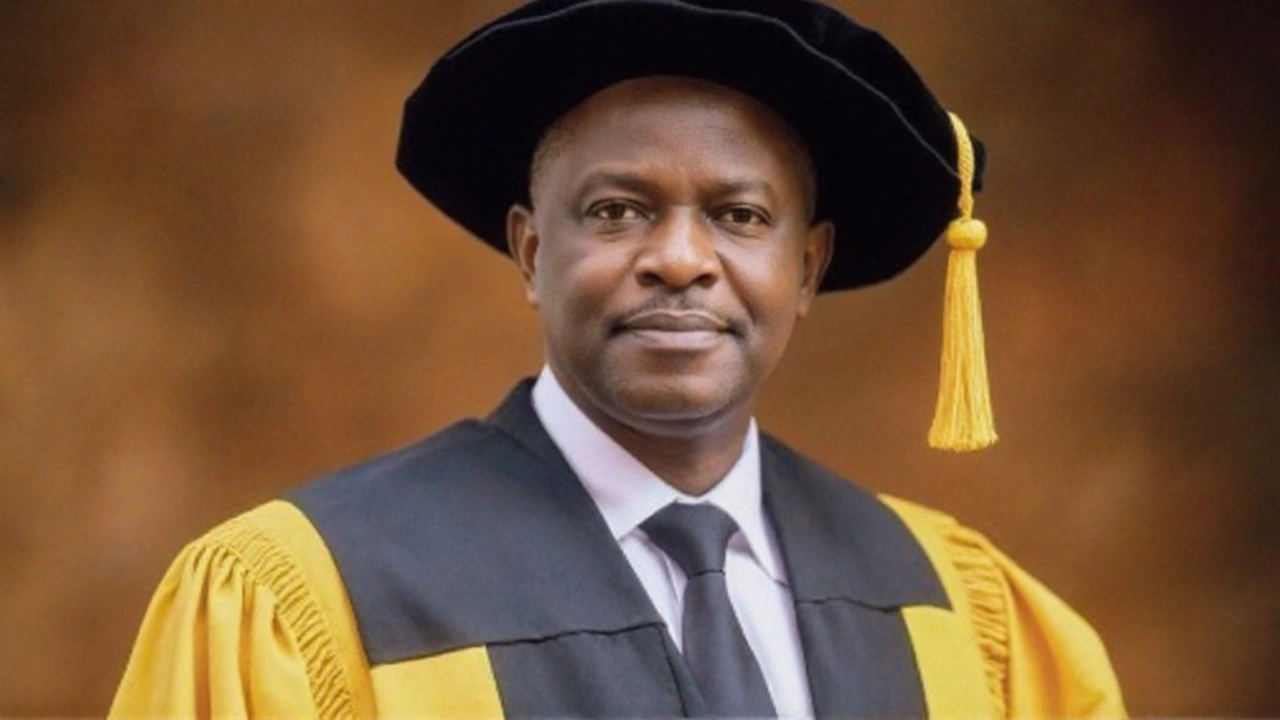Legal backdrop to the dispute
On March 30, 2022, Justice B.B. Kanyip delivered a decisive judgment at the National Industrial Court in Abuja that PENGASSAN does not have the right to unionise senior staff at the Federal University of Petroleum Resources (FUPRE). The ruling dismissed a 2021 suit that PENGASSAN had lodged against a coalition of academic bodies, including ASUU, SSANU, NAAT, and the university itself. In its reasoning, the court cited the Trade Unions Act, Cap T14, Laws of the Federation of Nigeria, 2004, which limits the scope of industrial unions to specific categories of workers and explicitly excludes senior university employees.
Following the judgment, the Federal Ministry of Labour and Employment issued a formal affirmation that the decision aligns with national labour law. The ministry’s statement underscored that any attempt by PENGASSAN or its counterpart NUPENG to collect dues or claim representation for FUPRE senior staff would be unlawful and could expose the unions to penalties for contempt of court.
The university’s governing council has repeatedly echoed the court’s position. Minutes from its 56th Regular Meeting on June 16, 2023, and the 59th Meeting on October 25, 2024, show unanimous votes to reject the unions’ claims and to halt all check‑off deductions for alleged union members. These council resolutions were presented as a safeguard for the institution’s financial integrity and to protect staff from being drawn into a legal gray area.

Current standoff and implications
Undeterred by the binding 2022 decision, PENGASSAN filed a fresh case (NICN/ASB/38/2024) at the National Industrial Court’s Asaba Division. The new suit, now before Hon. Justice Opeloye A. Ogunbowale, is slated for a hearing on November 20, 2025. The union argues that the earlier judgment failed to account for recent amendments to the Trade Unions Act and alleges that senior staff at a specialised petroleum university deserve representation similar to technical workers in the oil sector.
Vice‑Chancellor Prof. Ezekiel O. Agbalagba has warned that any self‑help tactics—such as blocking university entrances or disrupting academic activities—could be deemed contemptuous. He emphasized that the university remains committed to upholding the 2022 ruling and expects all parties to respect the judicial process while the case proceeds.
Nevertheless, the dispute has spilled onto the campus. In July 2025, members of NUPENG and PENGASSAN staged a series of pickets, using petrol tankers and trucks to block the main gates. Placards called for the VC’s removal and accused the administration of victimising union members. The blockades caused significant disruption to student commutes and delayed research activities tied to the university’s petroleum programs.
Stakeholders across the education and oil sectors are watching closely. If the November hearing overturns the earlier judgment, it could set a precedent for other specialised institutions seeking union representation for senior staff. Conversely, a reaffirmation of the 2022 decision would reinforce the current legal separation between academic seniority and industrial unionism in Nigeria.
For now, the campus atmosphere remains tense, with staff and students navigating the uncertainty while academic calendars continue. The outcome of the pending case will likely shape not only the labour landscape at FUPRE but also the broader relationship between professional unions and higher‑education institutions in the country.

14 Comments
Man, the whole union thing at FUPRE feels like a never‑ending drama. The court said senior staff cant be in PENGASSAN, but the unions keep pushin anyway, lol. I guess they think the law will change if they shout loud enough.
The pursuit of collective voice is not mere selfish clamour; it's the heartbeat of a truly democratic academia. Yet when the law draws a line, defying it transforms activism into anarchy. We must respect the judiciary while also questioning whether the statutes themselves are stale. The balance between order and justice is a delicate dance, one that demands both rigor and compassion.
It's absolutely disgRaseful that these unons think they can ignore the court's clear ruling. Senior staff deserve respect, not this cheap politcal stunt. If we all start bending the law for conveinence, society collapses under its own hypocrisy.
This whole spectacle is an overblown bureaucratic farce
Really hoping both sides can find a peaceful path forward 😊. The students shouldn’t have to bear the brunt of these clashes 🙏. Let’s keep the dialogue open and constructive 👍.
The corridors of FUPRE have become an arena where law, labor, and lingering ambition clash like thunderous waves upon a rocky shore.
On March 30, 2022, Justice B.B. Kanyip delivered a verdict that rang like a gavel striking the very foundations of union ambition.
This ruling, rooted in the Trade Unions Act of 2004, delineated a stark boundary between senior academic staff and industrial representation.
Yet the unions, emboldened perhaps by the oil-rich heritage of the institution, have refused to accept the demarcation.
Their fresh filing, NICN/ASB/38/2024, claims that recent statutory amendments have opened a legal doorway previously sealed.
The Vice‑Chancellor’s warnings echo the cautionary tales of past institutions where self‑help spiraled into chaos.
Blockades with petrol tankers and trucks have not only halted research but have stained the university’s reputation in the eyes of industry partners.
Students, already burdened by rigorous curricula, now navigate a campus littered with uncertainty and disrupted commutes.
If the November hearing overturns the 2022 decision, it could herald a new epoch where senior scholars wield the same collective bargaining power as field technicians.
Conversely, a reaffirmation would cement the legal chasm, preserving the distinct identity of academic leadership.
Across Nigeria, other specialized institutions watch with bated breath, measuring the potential ripple effects on their own labor relations.
The legal discourse, however, must not eclipse the human element: the staff who tirelessly teach, research, and mentor.
Their aspirations for fair representation are legitimate, yet must be balanced against the structural integrity of the university system.
Ultimately, the courtroom will decide, but the echoes of that decision will reverberate far beyond the walls of FUPRE.
Until then, the campus remains a microcosm of a nation wrestling with the delicate dance between tradition, law, and progress.
One can't help but wonder whether the Ministry of Labour is merely a puppet for hidden corporate interests hidden behind the oil sector's glitter. The timing of the renewed case aligns suspiciously with upcoming legislative votes that could reshape union powers. It's as if a shadow board is pulling strings to keep senior staff under a tighter leash, ensuring profit margins stay untouched. The court's consistent rulings might be less about jurisprudence and more about maintaining an unseen status quo.
Our national resources should stay under Nigerian control. Foreign influences trying to disrupt local unions only weaken our sovereignty.
For anyone tracking this case, the key statutes are the Trade Unions Act, Cap T14 (2004), and the recent amendment in 2023 that expanded definitions of “technical workers.” The 2022 judgment hinged on the exclusion of senior academic staff, but the new filing argues that petroleum‑focused institutions fall under the technical category. Keep an eye on the November 20 hearing; the judge may interpret the amendment differently.
The soul of our nation is forged in the oil fields, yet the minds that educate its engineers are being shackled by outdated legal dogma. When a court claims to protect tradition, it often masks an agenda that stalls progress. We must challenge such rulings not out of rebellion, but out of a profound love for Nigeria's future. Let the law serve the people, not the other way around.
Ugh, this drama is just exhausting 😩. Can't we all just move on already? 🙄
Whoa, this whole union saga is wild! 😮 If you need a quick rundown, basically the court says senior staff can't join PENGASSAN, but the unions are pushing back. Stay tuned for the November decision – it'll be a big one! 👍
Hey folks, I get how stressful this whole thing is for the staff and students. Remember, every challenge is an opportunity for growth and better policies. Keep the vibes positive and support each other through the uncertainty! 💪
Interesting how the legal definitions evolve over time, yet the core issue remains staff representation. Could there be a middle ground that satisfies both the university's autonomy and the unions' advocacy?